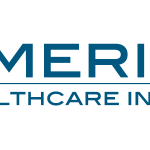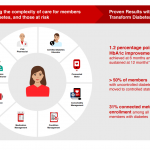The drug business can feel like a go-kart race, with big pharmaceutical giants and biotech startups knocking against each other as they scramble to be the first to market with the next big blockbuster.
Plenty of hot drug development races are on this summer. Companies are striving to be the first to market with next-generation therapies for diseases as common as rheumatoid arthritis, or as rare as spinal muscular atrophy.
Here are the big drug development showdowns to watch in the second half of 2019.
The next Humira
Want to publish your own articles on DistilINFO Publications?
Send us an email, we will get in touch with you.
With AbbVie’s (ticker: ABBV) mega-blockbuster Humira losing its patent protection in the U.S. in 2023, the company is looking for its next big anti-inflammatory drug. It has one in upadacitinib, which the company recently submitted for approval to the Food and Drug Administration as a treatment for rheumatoid arthritis. But it won’t be the only player in the game.
Gilead Sciences (GILD) has its own anti-inflammatory, called filgotinib, that it hopes to have on the market as a rheumatoid arthritis treatment soon after AbbVie’s entry. In July, the company said it was planning to file an application for the drug with the FDA this year. That surprised analysts, who hadn’t been expecting it so soon. Analysts now say that filgotinib could be available by the start of 2020.
That sets up a commercial showdown between AbbVie and Gilead that will play out over the next few years. AbbVie has a leg up, given its current dominance of the anti-inflammatory market, but Gilead is no slouch, and AbbVie can’t rest easy.
A gene therapy race
Duchenne muscular dystrophy is an inherited genetic disorder that leads to muscle degeneration, and significantly shortens life expectancy for the thousands it effects (it typically effects boys). Now companies are developing gene therapies that could dramatically improve the conditions of people suffering from the disease.
Three players are in the race for the first DMD gene therapy: Pfizer (PFE), an 800-pound gorilla of drug development, and two smaller companies, Sarepta Therapeutics (SRPT) and Solid Biosciences (SLDB).
Sarepta already has one available treatment for DMD called Exondys 51, which the FDA approved in 2016, though questions linger about the drug’s effectiveness. A functional gene therapy would be a major development for people suffering from the disease.
In July, Pfizer released initial data from a Phase 1b study of its gene therapy for DMD. It showed showed that two of the six participants in the study had been hospitalized following their treatments. Pfizer said it had stopped giving patients the drug until it had implemented new safety monitoring.
That led analysts to anoint Sarepta the leader in the DMD gene therapy contest, on the strength of data the company released last year. “Given the choice of a one-time therapy, the currently available clinical profile points to a single winner in [Sarepta’s offering], in our opinion,” H.C. Wainright & Co. analyst Debjit Chattopadhyay wrote.
Still, it’s not over ‘til it’s over. In August, Sarepta announced a new timeline for trials of its gene therapy that analysts said could be delayed when the company submits its application to the FDA, narrowing its lead over Pfizer.
SMA showdown
Spinal Muscular Atrophy, another rare genetic neuromuscular disorder, is also shaping up to be a major showdown among drug developers. Some new SMA drugs are already on the market, and the competition is starting to heat up.
Back in 2016, Biogen (BIIB) received regulatory approval for Spinraza, the first SMA treatment available in the U.S. This year, Novartis (NVS) received approval for Zolgensma, a $2.1 million gene therapy. And Roche (ROG.Switzerland) is currently testing a drug called risdiplam, and is expected to submit the drug for FDA approval late this year.
Now it’s up to doctors and patients to decide which drug to choose. In late June, one pediatric neurologist told analysts at Raymond James that Spinraza would lose out to its competitors. Biogen, in a statement, rejected that notion. Meanwhile, some insurance companies have adopted policies that strictly limit the conditions under which they will cover Zolgensma treatments.
And in early August, the FDA issued an unusually strong statement condemning Novartis for failing to report that it had discovered falsified data in mouse studies submitted as part of Zolgensma’s biologic license application. The FDA said the tests were unrelated to the human clinical trials and that safety was not affected. Novartis defended its decision to not tell the FDA about the falsified data until after Zolgensma was approved. The FDA said its response could “include civil or criminal penalties.”
One potentially significant factor: Spinraza treatment requires regular injections in the spine. Risdiplam, for its part, is administered orally.
This contest could take time to shake out.
NASH bash
Non-alcoholic steatohepatitis, or NASH, is a major target for drug companies, with up to 12% of American adults thought to suffer from the disease and no approved medical cure. NASH can lead to more serious conditions, like liver cancer.
Numerous biotech companies are working on a NASH drug, with three or four companies in the lead. This year has been challenging, though, as industry leaders faced disappointing results for late-stage NASH assets.
Gilead is investigating a handful of drugs to treat NASH, but its lead candidate, a drug called selonsertib, returned two separate sets of disappointing trial results early this year. A collaboration between Novartis and Conatus Pharmaceuticals (CNAT) on a drug called emricasan returned disappointing results in a phase 2b trial in June, and Conatus subsequently announced plans to restructure.
Intercept Pharmaceuticals (ICPT) has long been though to have a leg up in the contest, but the company offered mixed trial results on its drug ocaliva in April, and the stock fell sharply.
Meanwhile, Allergan (AGN)—the Botox-maker in the midst of being acquired by AbbVie (ABBV)—has its own NASH drug in Phase 3 trials, called cenicriviroc. And Genfit S.A. (GNFT), a smaller European company that went public earlier this year, has a Phase 3 candidate elafibranor; trial results are pending.
In short, this race is a scramble, and it’s less clear than ever who will cross the finish line first.
Hemophilia A
Today, people suffering from hemophilia A can receive regular injections of Roche’s Hemlibra to manage their symptoms. A gene therapy could cure the disease with a single treatment. Three experimental drugs have been leading this race: BioMarin Pharmaceutical’s (BMRN) Valrox, Sangamo Therapeutics’ (SGMO) SB-525, and Spark Therapeutics’ (ONCE) SPK-8011.
Sangano’s entry, on which Pfizer is collaborating, has had promising early-stage results. New data is expected from Spark. But BioMarin may be farther along: The company said in July that it would file for regulatory approval of its drug in the U.S. and the European Union sometime in the fourth quarter of this year.
If the regulators bite, this contest could have a clear winner by the middle of next year.
Date: August 14, 2019
Source: Barron’s








